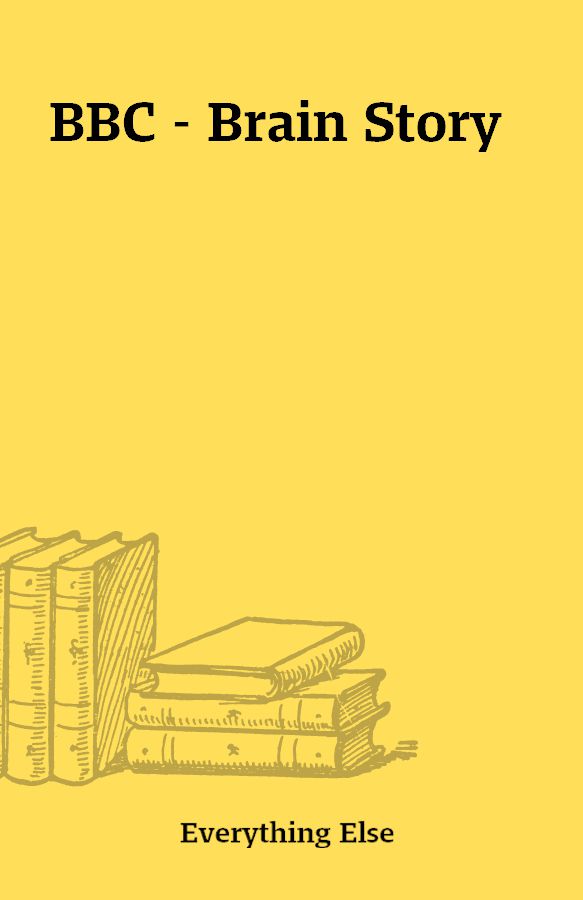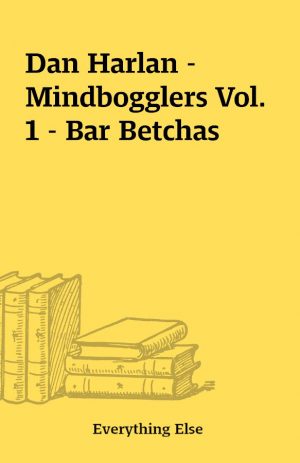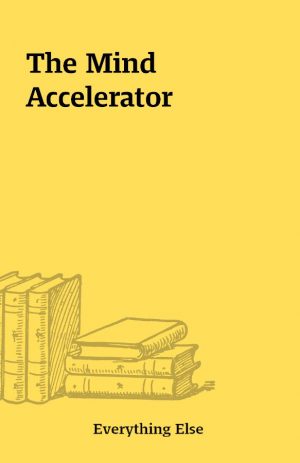BBC – Brain Story
BBC_Brain_Story
[6 DVDs – Rip]
Description
BBC – Brain StoryIt is a six part series covering virtually every area of contemporary neuropsychology, including the major researchers, discoveries, techniques and even many of the patients who have been the subjects of classic case studies that have helped us understand the curious effects of brain injury.Episode 1: All in the MindEpisode 2: In the Heat of the MomentEpisode 3: The Mind’s EyeEpisode 4: First Among EqualsEpisode 5: Growing the MindEpisode 6: The Final Mystery——————————————For many people damage to brain has a devastating effect – but for the artist Vincent Van Gogh it may have provided his inspiration.The BBC series Brain Story examines claims that damage to the temporal lobe of the brain may have played a major role in the work of the great post-impressionist.Such damage often results in epilepsy. It can also affect the way the brain processes audio and visual information. In Van Gogh’s case, experts believe that this may have changed the way he perceived the world, and may have led directly to his highly personal form of art.Dr Shahram Khoshbin, from Harvard Medical School, has attempted to piece together the effect Van Gogh’s epilepsy had on his life and art.Working with patients who have suffered damage to the temporal lobe, he has discovered that they perceive colours as being brighter and images as more vivid than they actually are.”Sensory integration takes place there, so it is easy to see how a disturbance in this area could create a different sensory experience.”Programme presenter Professor Susan Greenfield, a leading neuroscientist from Oxford University, said malfunctions in the temporal lobe may even lead to intensely spiritual feelings.”We know that if you stimulate that area sometimes people will say they feel a mystical experience.”Brain Story examines how the brain controls every aspect of our being from movement to the emotions. Professor Greenfield said the brain was the most fascinating of human organs, largely because it remains so mysterious.”The brain is the essence of you. It is the most private part of your body, it is the thing that gives you that rich inner world that I cannot hack into.”It is what makes you the person you are. Even though you can have a transplanted liver or heart and still be the same person, if you transplanted your brain you would be a different person.”Fossil records have shown that the human brain has not changed significantly for thousands of years.”We are more sophisticated, but it is due to our ability to learn and adapt from the generations that have gone before us than any physical change particularly in the brain,” said Professor Greenfield.”We are born with the same brains as people born 50,000 years ago on the Savannah.” However, Professor Greenfield said that the size of the brain was not a good indicator of mental ability.”Einstein had a marginally below average size of brain. It is more the connections between the brain cells that is really important, and that gives you the unique ability to adapt and evolve as a person.”However, she dismissed the notion that we do not use large parts of our brain as “unlikely”.”You can look at scans of how the brain is ‘breathing’ using up oxygen and glucose and is hard at work.”I think people think that because only 10% of your brain cells usually are active at any one snapshot moment, that means you are only using 10% of your brain, but that is not the case because a brain cell can be silent, it inhibiting something else, and be working and contributing.”The series features an interview with a woman who is conscious while undergoing a brain operation.This is possible because there are no pain sensors in the brain.Another patient who lost her lower right arm tells how a touch to her face stimulates the sensation of movement in her missing hand. http://news.bbc.co.uk/2/hi/health/837632.stm
You must be logged in to post a review.






Reviews
There are no reviews yet.